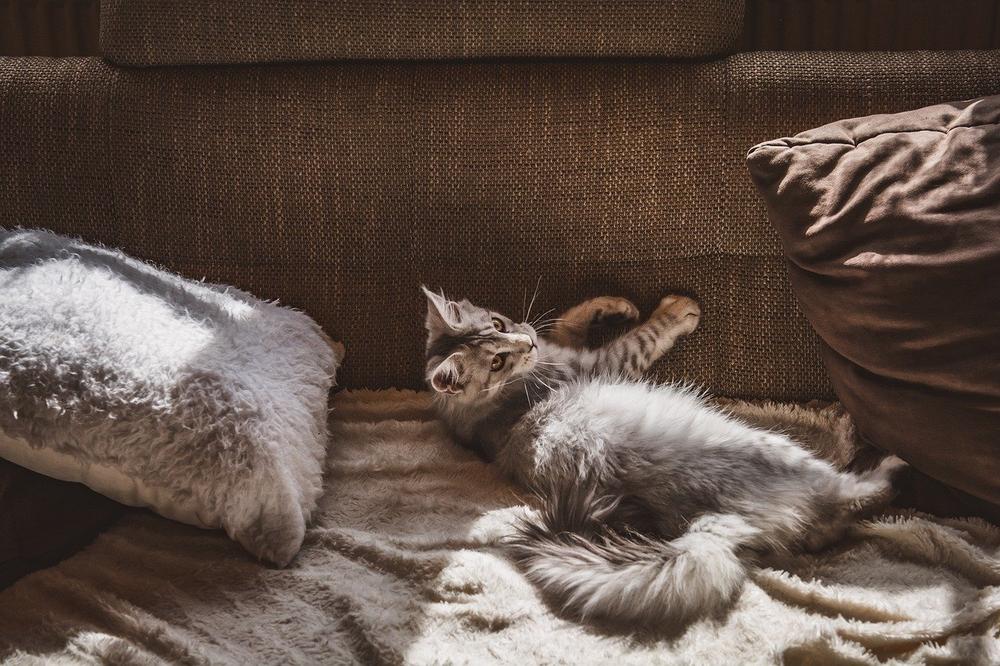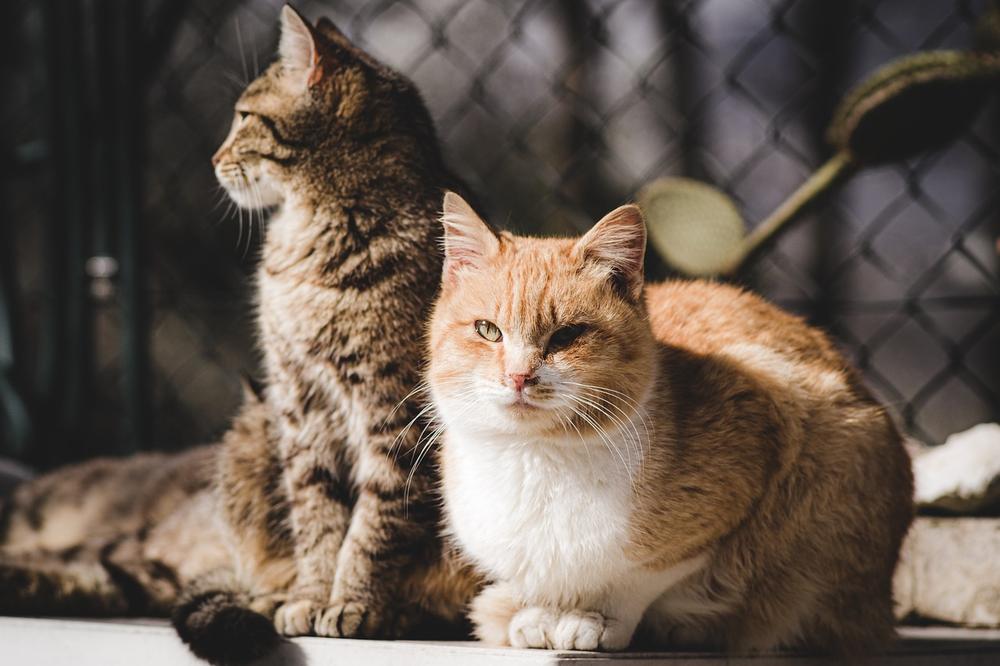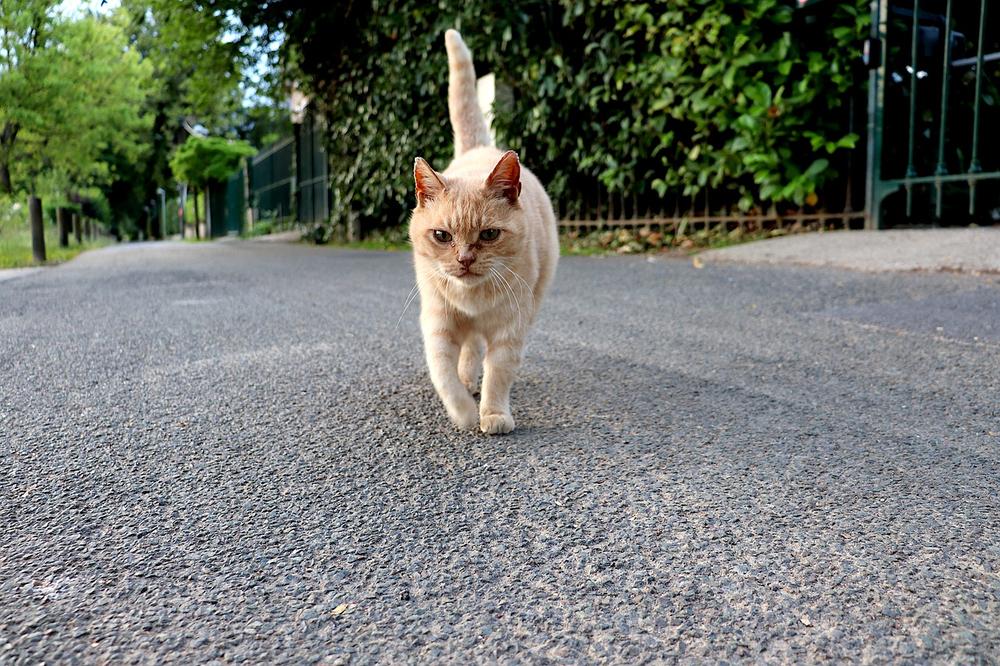Is Chamomile Safe for Cats? (Benefits, Side Effects & More)

Attention cat lovers!
Worried sick about your feline friend's well-being?
Are they feeling under the weather? 😿
Ever wondered if chamomile can whisk away their health concerns?
Let's dive in and discover the truth together.
Buckle up, cat guardians.
It's going to be a purrfectly wild ride!
Is Chamomile Safe for Cats?
Is chamomile safe for cats? 🐱
Well, here's the deal.
Different forms of chamomile can be either safe or toxic for cats.
So, using it safely is crucial.
You can give cats chamomile in different ways:
Tea, powder, liquid, capsule, oil, salve, or cream.
But, make sure that you be cautious and consult a licensed veterinarian before proceeding.
Now, things get interesting. Certain parts of the chamomile plant are highly toxic to cats because they contain harmful chemicals. But fear not.
Chamomile tea can actually be safe and helpful for cats, as long as you use the right type.
Here's the trick: German Chamomile is safe, while English Chamomile is toxic for cats.

You need to remember that distinction.
But, hold your horses.
Before giving your furry friend any chamomile product, especially tea, make sure you check with a veterinarian or pet nutritionist for their expert opinion. Safety always comes first, my friends!
Ultimately, chamomile serves as a widely used and safe natural remedy for both dogs and cats.
Just make sure you're using the correct kind and following the advice of the experts.
And by the way, if you're interested in learning more about the safety of essential oils for cats, I highly recommend checking out my article Is Lavender Oil Safe for Cats.
Benefits of Chamomile for Cats
Discover how chamomile can benefit your furry feline friend:
- Cats commonly use chamomile as an herbal supplement.
- It helps them relax and has a calming effect.
- If your cat is experiencing aches or pains, chamomile's anti-inflammatory properties can help soothe them.
- Whether your cat ingests it or you apply it topically, chamomile can address gastrointestinal issues.
- Get rid of bloating and abdominal pain by using chamomile's gentle touch.
- Minor itchiness, insect bites, or skin irritations can be treated with chamomile tea.
- Chamomile has flavonoids that provide relief from hot spots and itching.
- Before giving chamomile to your cat, consult a vet for guidance.
- When using chamomile, always check the ingredients and follow the label's directions.
- Choose the right form of chamomile - tea, tincture, balm, or ointment - based on your pet's needs.
Ensure your beloved companion gets the proper care with the help of chamomile! 😺

And now, I must emphasize the importance of using chamomile responsibly and taking precautions to ensure your cat's safety and well-being...
Side Effects of Chamomile in Cats
The importance of following directions when using chamomile with cats
When you give your cat chamomile, always listen to your vet.
You should follow the recommended dosage and cautions to keep your furry friend safe.
Watch out for potential adverse reactions
If chamomile upsets your cat's stomach, try giving it with food. And be sure to measure liquid chamomile carefully to avoid accidents.
Don't give your cat any extra or double doses.
Here's the deal:
Only use chamomile as a short-term solution, following the provided instructions. Keep a close eye on your cat after giving chamomile.
If you notice loss of appetite, lethargy, vomiting, diarrhea, or soft stool, stop using chamomile immediately. Severe cases can involve bleeding, so be cautious.
Be cautious about chamomile interactions and long-term use
You need to tell your vet about all the medications your cat is taking.
Chamomile can interact with other drugs.
Remember, safety comes first.
More importantly, chamomile can make your cat sleepy and affect their coordination.
You don't want your feline friend stumbling around.
So, here's the bottom line:
The long-term effects and toxicity of chamomile in cats are still unknown.
To be safe, avoid using chamomile plant parts directly on or in cats.
And please, don't give them chamomile tea - it's toxic and dangerous.
If you're unsure about anything, consult your veterinarian for professional advice.
They're the experts!
But what if chamomile could not only alleviate your cat's itchy skin but also provide additional benefits for their all in all health?
The answer lies in the powerful properties of chamomile that can address various common conditions in our feline friends.
Let's delve into how chamomile can be a game-changer for your beloved furball's well-being...
How Can I Soothe My Cat's Itchy Skin?
To soothe your cat's itchy skin, here are 11 effective methods you can try:
- Cool chamomile rinse: You can use this to calm your cat's skin.
- Keep their coat clean and allergen-free: Regularly groom them so they don't have any irritants on their fur.
- Check for fleas: If you spot any, make sure to treat them promptly.
- Feed them a balanced diet: Ensure they're getting all the necessary nutrients.
- Avoid dirty water: Discourage swimming in contaminated or unclean water.
- Trim long hair: This prevents tangles that could irritate their skin.
- Regular grooming: By doing this, you remove potential irritants from their coat.
- Consult vet for medication options: If necessary, seek professional advice.
- Create a stress-free environment: Make sure they have a comfortable and relaxed space to live in.
- Use organic ointments made for cats: These will be safe and specifically formulated for their needs.
- Stay attentive: Monitor their behavior and watch out for signs of discomfort.
Always prioritize your cat's health by choosing natural and safe products that don't contain harmful chemicals or pesticides.
By following these steps, you can help relieve your cat's itchy skin and provide them with much-needed relief.
How to Reduce or Relieve Stress and Anxiety
Adding chamomile to your cat's routine is a smart move. This natural remedy brings soothing and relaxing properties that work wonders in reducing stress and anxiety.
Chamomile has the power to calm down even the most highly-strung feline, offering relief from mild anxiety.

By giving your cat this calming concoction, you're showing them the path toward relaxation and better sleep. Plus, it ensures their in essence well-being remains intact.
So go ahead and introduce chamomile into your furry friend's daily regimen.
Your cat will thank you with purrs of contentment and peace.
Cats and Chamomile: The Perfect Pairing
Key Takeaways:
- Chamomile can be given to cats in various forms, but use caution.
- Store chamomile in a cool, dry place at room temperature.
- Consult a licensed vet for guidance on giving chamomile to your cat.
- Dosage of chamomile depends on various factors.
- Some parts of the chamomile plant are highly toxic to cats.
- German Chamomile is safe for cats, while English Chamomile is toxic.
- Verify the safety and appropriate usage of chamomile with a vet.
- Chamomile is a safe and widely used natural remedy for cats.
- Chamomile provides sedation, anti-inflammatory effects, and muscle relaxation.
- Chamomile can be applied topically or ingested for various benefits.
- Chamomile is beneficial for stomach issues, skin irritations, and itch relief.
- Use chamomile for pets under the guidance of a vet and follow instructions.
- Different forms of chamomile for cats include tea, tincture, balm, and ointment.
- Proper administration of chamomile involves following vet's directions and cautions.
- Take precaution to avoid adverse reactions, overdose, and potential toxicity.
And that wraps up today's article.
If you wish to read more of my useful articles, I recommend you check out some of these: Can Cats Eat Spider Plants, Can You Use Human Shampoo on Cats, Are Christmas Tree Toxic to Cat, Is Fittonia Toxic to Cats, and How to Clean a Cats Nose
Talk soon,
-Sarah Davis